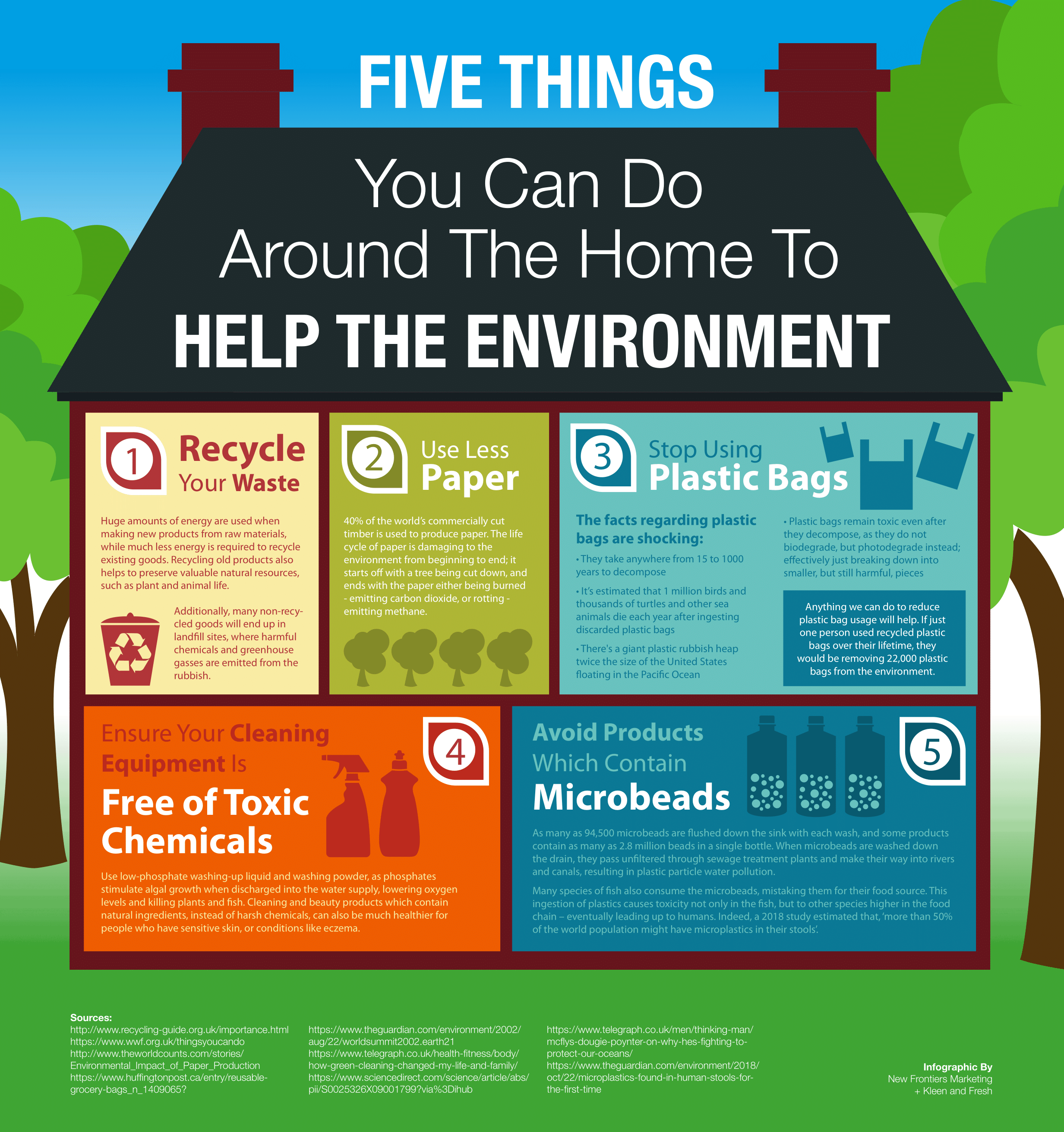With more people than ever making an effort to ‘go green’ and help the environment, one of the best places to start is in the home. This infographic shows readers some of the most common causes of environmental damage in the home and how to solve them.
Under-five helpful key headings, the infographic shows where you can have the most impact at home. Do you use plastic bags? You may want to consider reducing or replacing them altogether. Are you recycling your waste? This is one of the best ways to save energy and ensure that less waste goes to harmful landfills. Perhaps you have also made the switch to non-toxic cleaning materials as the infographic advises, or are avoiding products that contain microbeads (i.e. tiny particles of plastic). These can go into the water supply and harm plants, animals and the environment overall. You may already have made another helpful switch — to paperless documents or bills. The infographic shows how paper consumption can waste energy and harm trees, and that we should reduce our use of paper at home if we’re keen to help the environment.
It can also be important for readers to feel confident that what they are reading is accurate and well researched. This is especially true when it comes to science and contentious issues like climate change. That’s why the infographic provides links at the foot of the document to relevant sources and studies. The reader can proceed with complete confidence in the information provided — and continue their own research and reading if they wish.
Each heading is in a clear and colorful box with further information below. It is simple, quick and easy to read while also empowering readers to take informed action. For anyone wishing to make a positive environmental change at home, this infographic is a great place to start.
